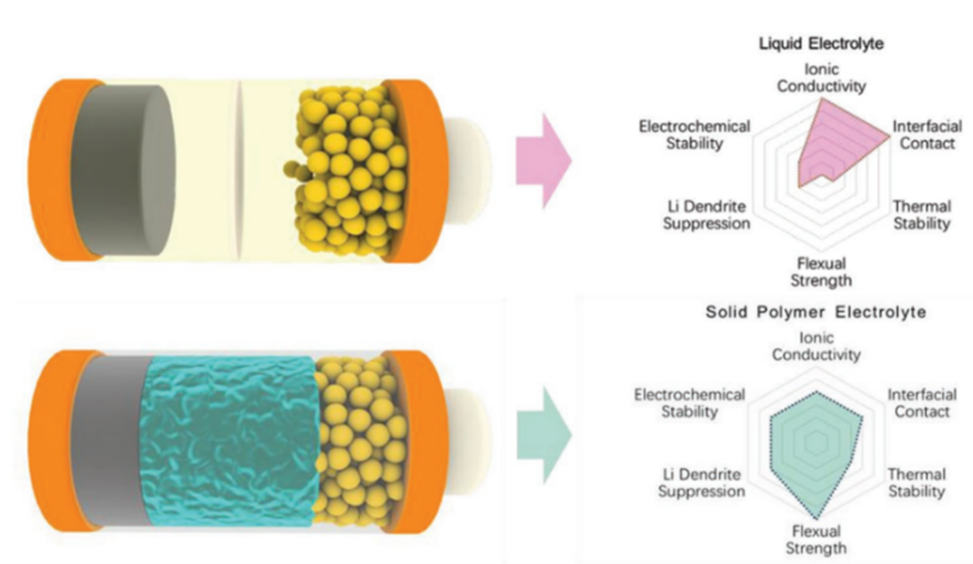Found 1 results
Review
15 March 2023Ultra-thin Solid Electrolyte in Lithium-ion Batteries
Safety concern of lithium-ion battery, attributed to using volatile and flammable liquid electrolytes, could be addressed by using solid electrolytes. Solid electrolytes including inorganic solid electrolytes, polymer solid electrolytes and organic/inorganic composite electrolytes have the common drawbacks in low ion-conductivity. Much efforts have been devoted to increase the specific ion conductivity, especially for inorganic solid electrolyte whose intrinsic conductivity are close to liquid electrolyte. However, most solid-state electrolyte membranes in lithium-ion batteries are thick, resulting in long ion-conduction pathway, low energy density and high cost. In this review, the advantages and disadvantages of different kinds of solid electrolytes were analyzed, and the promising strategies of ultra-thin solid electrolyte preparation are summarized and prospected. Applying organic-inorganic composite, continuous phase enhancement and in situ integration have been devoted to reduce thickness of electrolyte membrane and improve battery performance. On the basis of the technical requirement of lithium-ion batteries, this review aims to provide a guidance in terms of rational design and synthesis of ultra-thin solid electrolytes for further research that addresses the safety issues and improves cycling performance of batteries.
